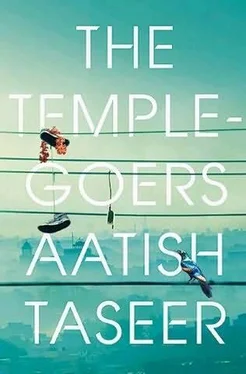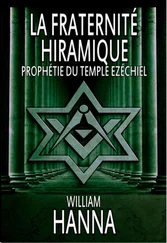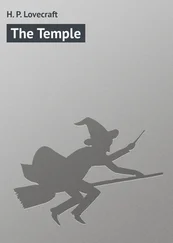That night, despite everyone’s best efforts, a lightness prevailed. We were like people arriving at a house in the country for a weekend, children at a sleepover, three unlikely friends holed up after a blackout or a terrorist attack. The house, combining an unfriendly exterior with familiarity within, seemed at least to Sanyogita and me like houses from our childhood. Sanyogita, though still quiet and fierce, was temporarily consoled by her surroundings. And I, taking my lead from her, too guilty to do otherwise, sought shelter in this brief peace. Aakash’s mood fluctuated: he was restless, one moment grieving and cast down, the next alert and attentive. Though there was not much conversation between us, we spoke at cross-purposes. An idea of Aakash’s new fame had settled in his mind, and in between whisky sodas, he would stop to ask me how he had looked that day on television. ‘Not too black, I hope?’ Then he remembered that it was Megha who used to say that of him and a moment of sadness returned.
‘She did it for our love,’ he said, ‘gave her life for our love.’
‘She didn’t give her life,’ Sanyogita snapped. ‘She was murdered.’
‘Yes,’ Aakash mumbled unsurely, and then animated again, said, ‘Did you see, on the television, they showed the colony and the jagran tent? They interviewed Mama, Papa, Amit. Anil too, I think. Strange, no? One minute you’re there; the next minute it’s on TV.’
Sanyogita’s face soured. Aakash saw and became serious.
‘How’s the investigation going?’ she asked.
Once again he mistook her meaning. ‘Fine,’ he replied. ‘Sparky, sir, says that it shouldn’t be too long now.’
‘For what?’ Sanyogita asked pointedly.
But Aakash, now wise to her, mechanically replied, ‘For justice to be done.’
‘And do you have any idea -’
He cut her short: ‘Can’t say, bhabi, just can’t say, but maybe Sparky, sir, is right. Maybe it is Nepalis.’ Then after a solemn pause, he said, as he once had of Muslims, ‘I think they’ll all have to go,’ and looked around the table for confirmation. ‘No?’
The next morning, after showers and breakfasts eaten separately, Sanyogita, Aakash and I gathered in a study upstairs in front of a flat-screen television. It was a windowless room with green walls, slim glass bookshelves, lit from below, and an orange and yellow chandelier. We sat in a row on a deep Oliver Musker sofa, white with large white woollen flowers. Chamunda was on the screen.
She wore a dark blue printed Kashmiri silk sari and an uncoloured pashmina decorated with tiny pink flowers. She had just come out from addressing the Chamber of Indian Builders and the old socialist building, with its generous use of patterned concrete screens, hung in the background. A journalist had stopped her on the way out to ask about the Megha case.
Chamunda looked sternly at the camera, then out at the misty winter day, and said, ‘I have already suspended two officers. Let it be an assurance of my commitment to solving this case that I will suspend the SSP Sectorpur if we don’t see satisfactory results in the very near future. That is all I have to say.’ With this, Raunak Singh swept her away in a white Ambassador.
I thought it wasn’t much, but Aakash, who knew more about these things than both Sanyogita and I, was impressed. Nodding his head, he cryptically repeated, ‘No empty threat, no empty threat.’
‘What do you mean?’ I said finally. ‘What’s the big deal if she suspends the SSP Sectorpur?’
‘The Senior Superintendent of Police, Sectorpur,’ Aakash said with sudden fluency, ‘is the most important police post in Jhaatkebaal. This man oversees every extortion and kidnapping case there is, taking his cut and where necessary even acting as a guarantor so that money actually changes hands under his supervision. He would have paid five crores of rupees just to get the post, which he is probably still paying back. To lose his position at this stage would ruin him. It’s a lot of pressure. Something’s going to burst very soon.’
By mid-morning, Chamunda’s office had leaked the information of Aakash’s secret marriage to the press. We sat together in front of the television when one of the Hindi channels began running pictures of the red and blue Arya Samaj certificate, with its pictures of Aakash in a blazer and tie and Megha with an inky stamp over her face. They had even got hold of a picture of the newly married couple, garlanded and in bright sunlight. I was worried about a bad reaction from Aakash, but it never came. He smiled at me knowingly and continued to watch. It was as if he was seeing a bigger game come into play, and far from being nervous of riding its currents, he was riveted, keen to know where to get on. And though it was not said, I sensed that, as the wronged man in the right position, Aakash felt the nearness of a golden opportunity.
As Chamunda would have predicted, the complexion of the story began to change with the revelation about the marriage. The re-enactments of the murder, or at least the ones in which an actor modelled on Aakash chased Megha through a midnight keekar forest, stopped running. Apart from Shabby’s channel, all the other channels began portraying Aakash and Megha as being on one side, co-victims, with the forces of the world against them. The murderer once again became someone in the world beyond, and no longer a specific man against whom the right evidence had only to be found.
But Chamunda had miscalculated. In putting pressure on her police force as well as shifting the focus of the case away from Aakash, she had opened the way for the police to hastily turn their attention elsewhere. And it showed that she didn’t know the men who made up her police force; that she thought them no different from Delhi police. It was an easy mistake to make, easy to think of the border between Sectorpur and Delhi as only administrative. But it had a significance deeper than she knew. It was the border between town and country, between old ways and new, city ways, between rural poor and urban middle class, between the mall-goers and the wild men of Jhaatkebaal. And across that border on all sides, where women in brightly coloured clothes worked in fields and men lazed on charpoys drinking tea, young girls did not wear capris, or send text messages, or have boyfriends; and they certainly did not marry out of turn. Just miles into that country of truck drivers and dangerous moustaches, with Delhi still visible, people thought nothing of killing a girl who had dishonoured their name. It was from this world that the bulk of Jhaatkebaal’s police force was recruited.
And so when revelations broke about Aakash and Megha’s secret marriage, and romantic text messages sent through the night saying ‘Appu this’ and ‘Aakash that’ came to light, and Airtel’s call register revealed late-night phone calls made from Megha’s phone, not only to Aakash but to ‘other strange persons’, it was with some sympathy for a brother, understandably forced to silence so loose a sister, that the police arrested Kris, the creative writer. They would just as happily have arrested his father, but Mr Aggarwal was over seventy and out of town at the time of the murder.
Chamunda’s SSP, a dark-skinned Sikh gentleman with a face as fierce as a grease wrestler and a purple police band across his olive-green turban, addressed the press conference himself. Facing a room full of Delhi journalists, he managed in broken English, a little pleased with himself at the formulation, to say, ‘Krishna found Megha and Aakash in an objectionable but not compromising position. Incensed, enraged, infuriated, he took matters into hand.’ The room fired back angry questions. ‘Did he have any real evidence against the boy or was this all conjecture? How could he offer this as a motive for murder? Did he not know that Kris had been to USA – to Hampshire College, Massachusetts – for his university, that he didn’t possess these backward values?’ At first the SSP came out fighting. He pointed to Megha’s frequent communications with strange men; he gave the room an idea of the clothes she liked to wear; he said that she sometimes drank; and on the night in question she had left her house, without her parents’ permission, to meet her secret husband; she had even driven herself. But gradually, as the distaste in the room grew, and cries of ‘character assassination’ rose from the press corps, the SSP became sadly subdued. He realized that he was among a strange lot, modern and valueless.
Читать дальше












